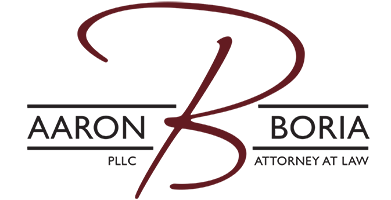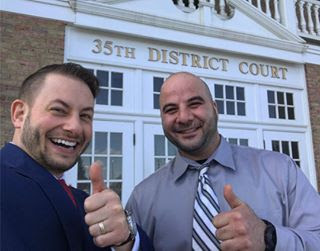Arraignment at the 35th District Court – Plymouth Lawyer
What will happens in court once you have been accused of a crime?
When you are charged with a crime the first hearing at the court is called an arraignment. At the arraignment the judge will formally tell you what you have been charged with and what the maximum possible penalty is. It is possible that even after receiving a citation from the police that the charges will change by the time you get into court.
The judge will also address bond. Bond is a fancy way of saying a promise to return to the court secured by money. Legally, bond aims at making sure someone is not a flight risk and that they are not a danger to the community. There are a few different types of bond. There is a personal bond where you do not pay any money up front, but if you violate the terms of the bond then you owe the court money. There is a 10% bond, where you would pay 10% of the amount the judge orders you to post and if you violate you owe the full amount. There is also just bond set at a full amount without a 10%. If you have to post money that money will be given back to you if your matter is dismissed, or you are found not guilty, and if you are found guilty the money will go toward your fines and costs.
Bond may also be accompanied by bond conditions. Bond conditions are determined on a case-by-case basis. Common bond conditions in drug or alcohol offenses like drinking and driving are not to drink alcohol or use drugs and test for the same. Common bond conditions in an assault and battery case are not to possess firearms, and not to have contact with the accuser. If you violate your bond by not showing up to court or by not complying with your bond conditions you risk going to jail while your case progresses and owing the court a substantial sum of money.
Your lawyer should argue for the lowest bond possible and object to outrageous bond conditions.
You can end up at the arraignment a few ways. Police may hold you in jail until they can take you to the court to be arraigned. The police may also let you leave the police station and either give you a court date or tell you to contact the court for your arraignment date.
At Aaron J. Boria, PLLC, we make our best efforts to have our client’s first hearing waived. When we file our appearance we will file additional documents for our clients in order to skip the arraignment. This does a few things; first it saves the client a trip to the courthouse. Second, in many cases it will allow the client to avoid having to post a bond and avoid bond conditions like random alcohol testing which would be at the client’s expense. Third, it will allow the client to go straight to the pre trial, which means resolving the matter sooner.
Some judges will not allow a waiver of the arraignment. Some judges will only allow a waiver on certain types of cases. The arraignment on a felony charge cannot be waived.
Regardless if your arraignment is waived or you appear for it your next court appearance will be a pre trial if the matter is a misdemeanor and a probable cause conference if the matter is a felony.
Learn more about the author, Plymouth lawyer, Aaron J. Boria here.




